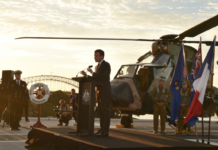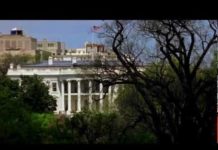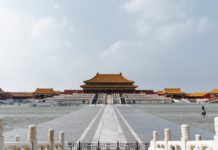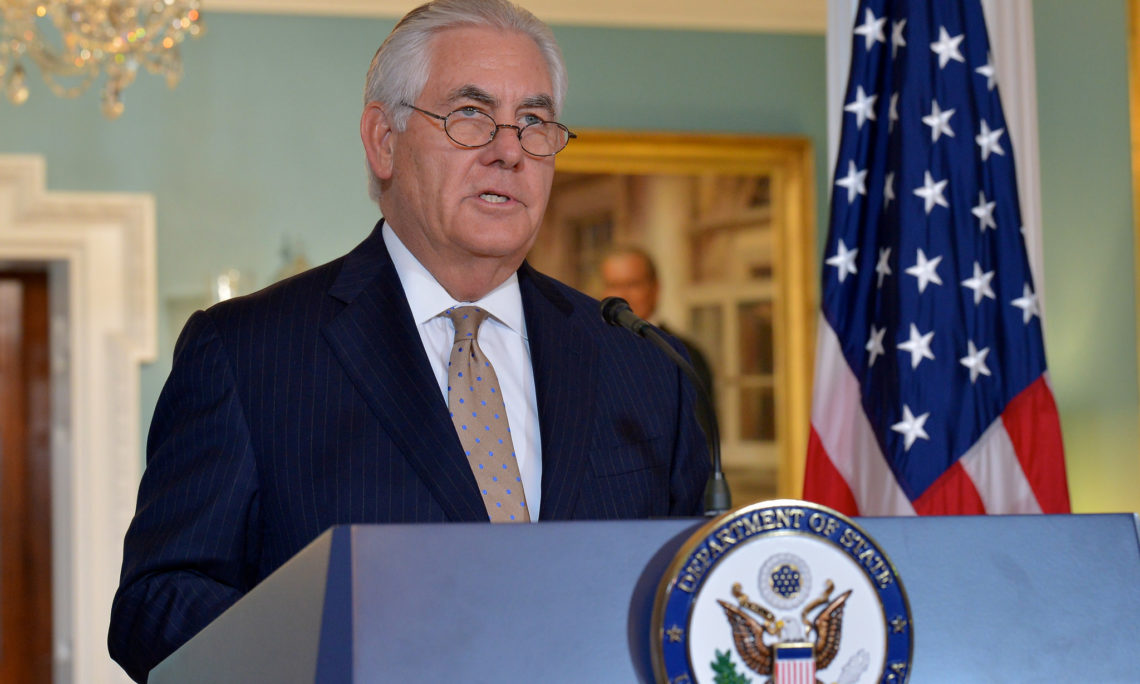Very few doubt that US foreign policy vis-a-vis North Korea has changed since President Trump took office in early 2017. However, how much it has changed is another question. Instead of defining the strategy in positive terms, so far his administration has done it only in negative terms. US Secretary of State Rex Tillerson has declared that the time of ‘strategic patience’ with North Korea is over, however neither him nor anyone else in the current administration have shared the broad principles upon which their new strategy rests. On top of this, contradictions between the President and members of his administration are frequent, adding uncertainty and projecting an image of disconnect or, worse, improvisation.
Let us therefore take a look at the main elements of Trump’s administration’s position towards the regime of Kim Jong-un. Firstly, despite the claim that the time of ‘strategic patience’ is over, the current administration continues to attach significant weight to the role played by international sanctions. This became clear when on 4 August and 11 September the UN Security Council passed Resolutions imposing the harshest sanctions yet on North Korea.
Although the scope of these sanctions is far greater than ever before, the use of this diplomatic recourse is not new to this administration. What is different, however, is China’s support for what are essentially US-led sanctions. Indeed, China had long maintained its refusal to impose sanctions on North Korea claiming that too much pressure could lead to instability and the potential collapse of the regime, an outcome far worse in China’s eyes than a nuclearised North Korea.
Which leads to the second ingredient in Trump’s recipe against Pyongyang, which takes the form of increased pressure on China for it to turn the screw on North Korea. China is North Korea’s largest trade partner and it has played an important role in leading the the Six Party Talks. However, Trump considers that the Asian giant can do more and that its increased economic weight needs to be reflected in a larger international role, in particular by applying greater pressure on Kim Jong-un.
This is not surprising and it is an old and useful recourse when there is very little to no trust between the parties in dispute. However, this presumes that China has significant leverage over North Korea, something which many analysts put in question. In particular, what Trump may perceive as significant economic leverage over North Korea, China may see as its only guarantee to avoid regime collapse, maintain stability, and retain a friendly buffer state in the Korean peninsula. The opposite, China fears, could result in a regional humanitarian crisis and the prospect of an increased US military presence at China’s doorstep.
In this regard, although China has supported the latest rounds of sanctions it has done so only after it succeeded in watering them down. Many also question, including senior US officials, if China will implement the sanctions, while almost every expert agrees that it would be almost inconceivable for China to support new sanctions in the future. Indeed, any further broadening of the sanctions would move the position closer to a full embargo, which as mentioned China would not support for fear of regime collapse in North Korea.
Accordingly, it is very unlikely that China will accept a further broadening of the sanctions or a full economic embargo, as requested by some sectors within the US administration. On the other hand, a military escalation does not and would not benefit China either, although it is unclear where its red lines are and most analysts are now starting to consider the option that North Korea is turning into a liability, not an asset, for China.
The third element in the policy towards Pyongyang is the existence of secret talks. Despite Trump and Kim Jong-Un’s increased military rhetoric, the US and North Korea governments apparently have been maintaining secret talks for months. Because of the secrecy of these talks there is not much information available but according to certain reports the dialogue is with a high ranking North Korean UN diplomat. If confirmed, it would constitute an important platform from which to reduce tensions and the risk of miscalculation, which is increasing alarmingly as a result of both leaders’ war rhetoric and actions. In addition, such a platform for dialogue could become the basis of future formal negotiations.
However, the most striking change in the current US foreign policy towards North Korea is the use of explicit threats. In diplomatic terms, this is known as ‘coercive diplomacy’ which consists in threatening your enemy with the use of military force if they do not change their behaviour. It is an old recourse that has more chances of success in a contest of asymmetric forces, where the threatening side has more muscle than the threatened side. However, it has much less chances of succeeding when your rival has a nuclear capability, given that the principle of mutual assured destruction is based upon the principle of contention. It does not make much sense either in the current geopolitical context, where US allies like South Korea and Japan stand to lose a great deal from any military escalation.
North Korea possesses nuclear weapons and it also maintains a strategic advantage over South Korea, as Seoul is much closer to North Korea than Pyongyang is to South Korea. In addition, the Kim Jong-Un regime has demonstrated it has the military capability to hit Japan. These two points are critical, given that as US allies and protected nations South Korea and Japan trust that the US will provide military protection, which includes the need for a guarantee on the part of the US that it will not drive conflict or take steps that risk escalating tensions. Similarly, it is against the interests of the US to take any steps that increase the risk of triggering a military confrontation that threatens the destruction of vital national interests.
All of this indicates that although Trump insists on presenting the military card as a viable option, the reality is that it is far from being a strategic solution. Another factor is that Trump may not be guided by military calculations which are generally driven by game theory and rational cost-benefit analyses, but by his own emotions and a negotiating instinct developed over the years in the commercial and real estate fields. This is what truly differentiates him from any of his predecessors and which significantly increases the risk of miscalculation.
In conclusion, although some elements of the current policy of the new US administration are not new, Trump has accelerated the pace of the conflict and is making use of a war rhetoric that he considers necessary to force North Korea into the negotiating table. However, such a new rhetoric increases the risk of miscalculation and as such could end up having far reaching strategic consequences for this conflict, the region, and the prevailing world order. Unless the Pentagon and Trump’s military advisers are now also of the view that the military option, despite its major costs, would bring a greater advantage to preserving the status quo, which is very hard to conceive.




























